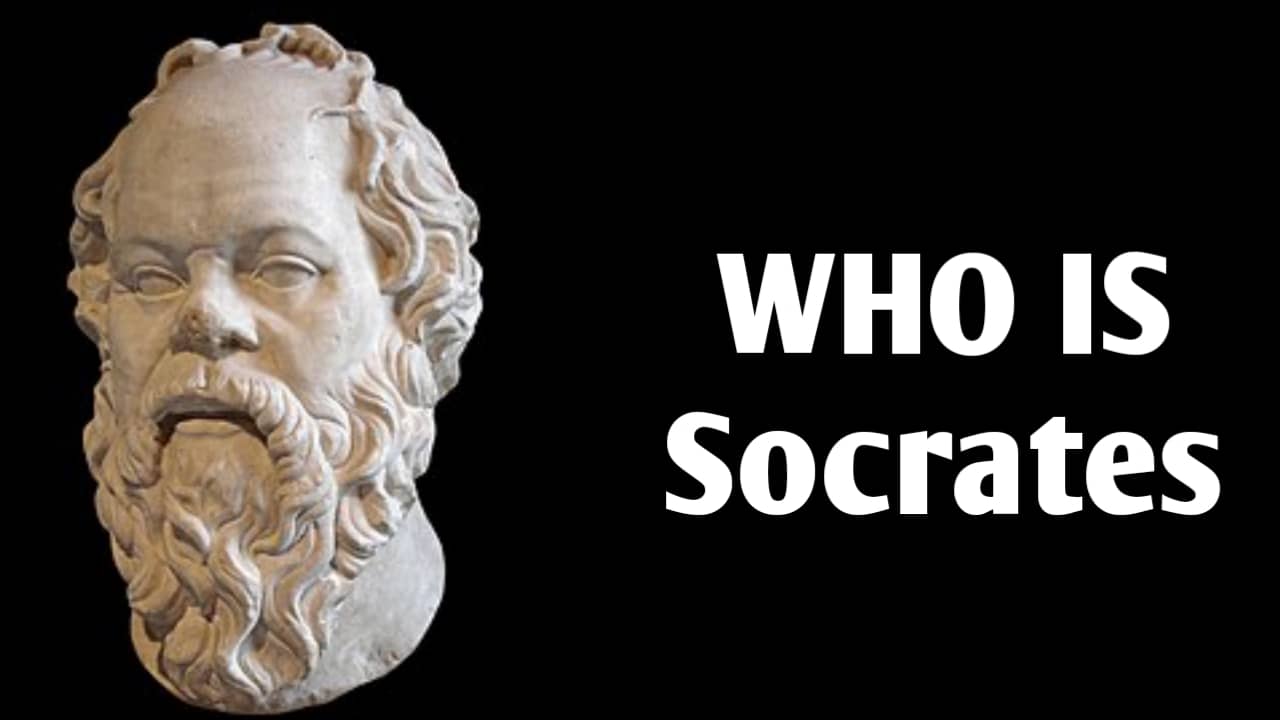Know About Socrates, Where did Socrates lived, his philosophy, teachings, his point view on God, how Socrates died, what was the cause of his death and much more.
Socrates Biography
Socrates Ancient Greek: was born and died between 470 – 399 BC was the Greek philosopher of Athens. A well-known founder of Western philosophy of the Western ethical tradition of thought. An enigmatic figure, he wrote no texts and was known mainly by the stories of classical writers, especially Plato and Xenophon, after his lifetime. The contemporary Antithenes, Aristippus and Aeschines of Sphettos are other sources. Aristophanes, a playwright, is the principal contemporary author of Socrates’ writing, although a piece of the Ion of Chios’ Travel Journal provides information about Socrates’ young people.
Socrates Cause of Death
Cause of death of Socrates: Athenians forced him to drink the poison and die.

Socrates Death Speech
You, Athenians, have sentenced me to death. Let me tell you, my friends and those of you who voted to acquit me, that death can be a good thing. It is either a state of nothingness and complete unconsciousness, or, as some claim, it is simply a migration from this world to the other.
Last Words
There are lots of reasons why I am not saddened by the vote of criticism, O men of Athens. I presumed it, and am only amazed that the votes are so close; I had expected a much greater majority against me; but now, if thirty votes had gone the other way, I should have been acquitted. And I believe I have escaped Meletus. I could go on, but without the help of Anytus and Lycon, anyone can see that he would not have received a fifth of the votes required by the law, and he would have been fined a thousand drachmas.
Where Socrates Lived?
Socrates was born in 469 or 470 BCE in Alopece, a deme of Athens, to wealthy Athenians Sophroniscus and Phaenarete, and thus became an Athenian citizen. [57] Sophroniscus worked as a stonemason, while Phaenarete worked as a midwife. He grew up living close to family of his father and he was inherited, as it was his father’s custom in Ancient Athens that ensured a life without financial disturbance. He learned the basic skills of reading and writing, as all Athenians and as most of the wealthy Athenians received additional lessons in various other areas such as gymnastics, poetry and music, according to laws and customs of Athens.
His Marriages and Wife
He had one or two marriages. When Socrates was in his 50s, he married Xanthippe, and the other time he married the daughter of Aristides, an Athenian statesman. He and Xanthippe had three sons. Socrates served in the Peloponnesian War and distinguished himself in three campaigns.
Socrates Philosophy
Socrates did not write any of his teachings or philosophy: what we know of him comes mainly from other people’s account; especially his pupils, the philosopher Plato and the historian Xenophons, the comedian Aristophanes, and finally Aristotle, who was born after the death of Socrates. The Socratic problem refers to the difficulty of properly reconstructing Socrates’ thinking in the correct context due to the sometimes contradicting reports of ancient sources.
Socrates states that philosophy must attain concrete results for society’s greater welfare. It sought to establish an ethical system based not on theological doctrine but on human reason.
Socrates believed it was translated into politics with no tyranny and no democracy being the best form of government. Instead, government worked best when it was ruled by people with the greatest ability, knowledge and virtue and full understanding of themselves.
Philosophy of Self (Knowing)
Socrates pointed out that the desire for happiness motivated the human choice. Last wisdom comes from self-knowledge. The more a person knows, the more he or she can reason and make choices that bring true happiness.
When we look inward for self-knowledge, Socrates Philosophy of self claims that we will soon discover our real nature. Unlike the view of the masses, according to Socrates, the true self is not to be identified with what we own, our social status, our reputation or even our body. Rather, Socrates claimed famously that our true self is our soul.
For them to know what “know yourself” means and thus “watch out for you,” Socrates says that they must understand what “self” really is. He says that in the case of self-knowledge the concepts of unity, selfhood and even agency cannot be avoided.
Quotes on Life
The first and only true knowledge is in knowing that you know nothing
Socrates
A life that hasn’t been analysed isn’t worth living.
Socrates
There is just one good, which is knowledge, and only one bad, which is ignorance.
Socrates
Strong brains talk about ideas, mediocre minds talk about events, and weak minds talk about people.
Socrates
Please marry; if you find a good wife, you will be happy; if you find a bad woman, you will become a philosopher.
Socrates
He who is dissatisfied with what he has will not be satisfied with what he desires.
Socrates
Socrates God
Socrates’ beliefs were nonconformist, despite the fact that he never explicitly rejected the standard Athenian view of religion. He frequently referred to God rather than the gods, and he claimed to have been guided by an inner divine voice.
Socrates considers sacrifices to Gods to be pointless, especially if they are motivated by a desire for a reward. Instead, he advocates philosophising and the pursuit of knowledge as a means of worshipping gods. The denial of popular methods of piety placed a moral burden on ordinary Athenians – his jurors too. Furthermore, Socrates’ reasoning was providing a wise and just Gods, a perception that differed from traditional religion.
